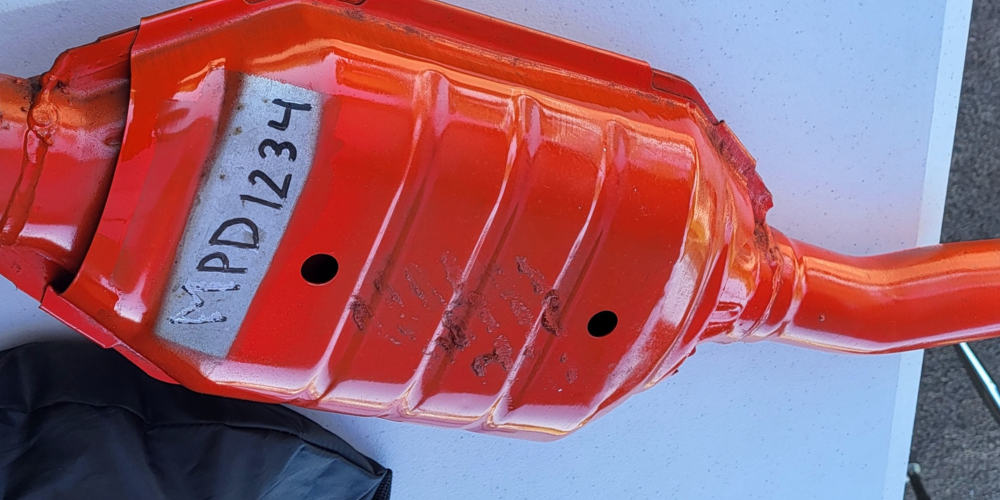A worsening economy, looming recession and a rise in precious metal prices have revitalized catalytic converter thefts. Prices of platinum, palladium, and rhodium — the elements found in catalytic converters — continue to soar, making black market sales more enticing. Compounding the issue is the fact that converters aren’t readily identifiable, putting recyclers and law enforcement at a disadvantage.
ISRI and its members have been working to protect the recycled materials industry from illegitimate core buyers and to demonstrate efforts the industry is making to work with law enforcement to curb illegal purchases of converters. ISRI partnered with the Martinsville Police Department in Virginia to host a catalytic converter marking event.
“We completed a day of training with Martinsville police in Virginia and then completed a marking program for catalytic converters in the area,” said Todd Foreman, ISRI’s director of law enforcement outreach. “The majority of the markings were for church vans as they had experienced a multitude of converter thefts. They marked over 30 vehicles during the event.”

Converters aren’t readily identifiable, putting recyclers and law enforcement at a disadvantage. Without identification, recyclers are less able to determine if they’re purchasing a stolen catalytic converter, and law enforcement can’t easily track down the stolen property. Though thieves will steal from any vehicle, they gravitate to large fleet vehicles since fleet vehicles are parked together in the same area of a lot, a thief at night can quickly crawl from one to the next. Thieves value the larger catalytic converters from fleet vehicles because they hold more of the highly-priced precious metals.
At the Martinsville event, converters were painted orange and engraved with the letters MPD along with part of the vehicle’s vin. One of the benefits to marking catalytic converters is that it can be immediately implemented at low or no cost. It also simultaneously identifies the converters and serves as a deterrent to thieves. In addition to the fleet of fans, some citizens drove up, requested the marking and had appointments scheduled. “It was a partnership between ISRI and the police department to help prevent the thefts and help the citizens of Martinsville not be victims of these crimes,” said Foreman.

ISRI continues to work on preventing catalytic converter theft by partnering with law enforcement and communities to host events similar events.
Photo credit: Todd Forman










